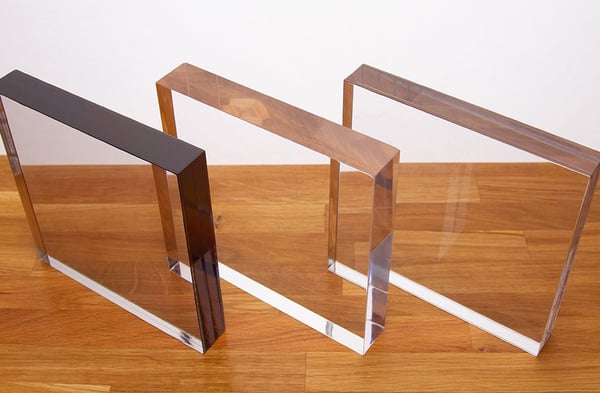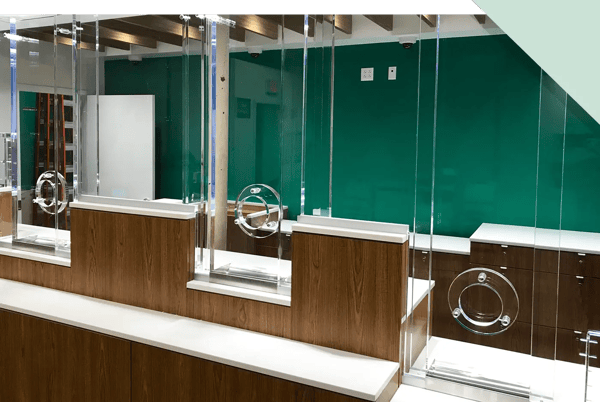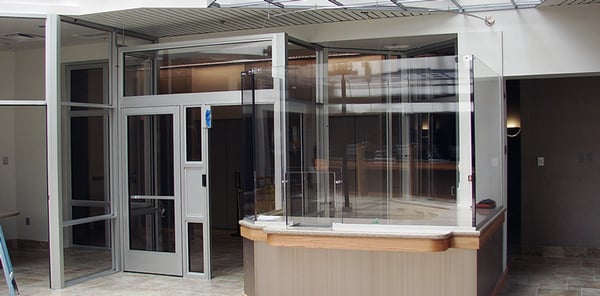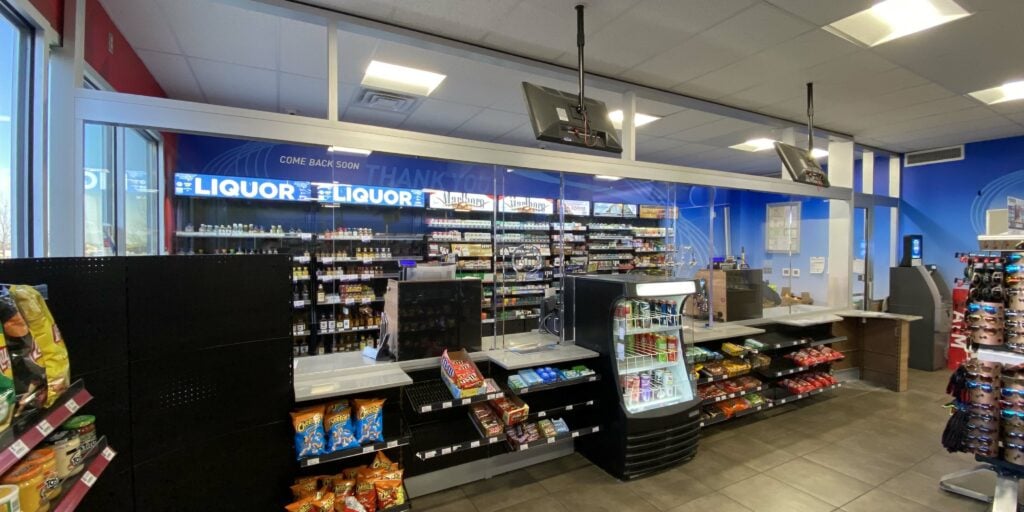While generally thought to be less risky, retail job fatalities account for roughly a third of all workplace fatalities, with the most common cause of death being homicide. In our blog post Retail Security Solutions And Workplace Violence Trends In 2021 we look at these trends in-depth, with our CEO Jim Richards noting that “Security levels are up across the board in retail, and trending toward higher-level barriers.” Jim attributes one of the biggest changes to the mindset of employers who are placing a higher value on workers than on the money, saying “It’s a change for the better. I’m glad that people are protecting what’s really important.”
In order to help you protect your workers and become better prepared, we’ve gathered together a list of frequently asked questions regarding retail security.
What UL levels are the most common in retail and convenience stores?
In a retail setting, a UL level 1-3 system is most common, with level 1 typically being the most used. We have several options when it comes to glazing, both interior and exterior.
For interior glazing, we offer ballistic acrylics levels 1-2, laminated polycarbonates levels 1-3, and glass-clad polycarbonates levels 1-8. Our general recommendation is a UL level 1 acrylic, but if you’re interested in additional protection you could go up to a level 2 or 3.

For exterior glazing, you could start with our UL level 1 defender insulated glass, but we do also offer glass-clad polycarbonate versions in levels 3-8 for exterior glass. We also offer ballistic fiberglass, which is an opaque panel that can be utilized in a variety of applications, including walls, millwork, and countertops, whether they’re new construction or a retrofit. This panel can then be covered with a finished material or even buried into a kick space.
When it comes to framing systems, our BL 1.75 rates from a UL level 1-3, and we offer steel framing systems as well. In addition, we can provide thermally rated exterior systems with aluminum, with non-rated versions available for the cost-conscious.
/social-suggested-images/TSS-BlogHeader_bullet-resistant-framing.jpg?width=600&name=TSS-BlogHeader_bullet-resistant-framing.jpg)
Our full range of doors includes aluminum, steel, wood, all glass, and acrylic, in a range of UL levels. Most commonly, clients will elect to use an acrylic polycarbonate door with a 1-3 UL level, with steel doors being a less expensive option for those wanting to be more cost-conscious.
/social-suggested-images/TSS-BlogHeader_CustomDoors-2.jpg?width=600&name=TSS-BlogHeader_CustomDoors-2.jpg)
How do I know what framing system I need?
In a retail setting utilizing level 3 protection, instead of a bulky frame we recommend our level 3 two-piece rated channel system. At level 1, because the client may be more cost-conscious, they might not be as concerned about the channel, walls, and everything surrounding it. However, as you go higher in level, the extra security you’re pursuing needs to be rated across the board, including doors and framing.
How do we ensure easy communication/interaction with customers?
In order to maintain ease of communication with customers, we offer a wide variety of options to include in your retail security system. Voice ports or talk through systems are excellent choices, whether you opt for a stainless steel voice port for natural sound, or something as simple as a 6-inch cut-out with a 10-inch oversized backer.
Our sliding window systems are another option and are available in horizontal or vertical for situations that may require the passing of large items. We also offer package passers, deal trays, and sliding drawers to make any customer transaction operate smoothly.

Are there more cost-effective options available?
Oftentimes when someone is looking for a cheaper alternative, they might decide to look into security window film. However, although it may be effective against forced entry, all practical applications do not actually stop bullets.
When you’re looking at effective security systems, level 1 is a cost-efficient option, though it serves as more of a deterrent. If you’re looking for a higher security solution that’s worth the investment, we recommend UL level 3 components to cover you against all manner of handguns.
Selecting a flush panel steel door is your least expensive door option, with costs incrementally increasing with wood, acrylics, aluminum, and finally all glass. You can also keep costs lower by opting not to include a view window or a half or full vision door, as additional glazing increases the price.
What are my options to protect big box stores or distribution centers?
For main entrances at retail distribution centers, we recommend UL level 3 glazing and framing systems as it covers all handguns.
We custom fabricate all of our products to fit your specific needs, and we are experts in designing, fabricating, and installing guard booths, vestibules, man-traps, and all manner of ballistically improved entrance areas. We’re able to work with your existing millwork or make our own, creating custom ballistic millwork that provides floor-to-ceiling coverage.
With a big box retailer you’ll typically see ballistic materials being used at a front entrance and other exposed areas of the storefront exterior. Inside, ballistic glazing is most common for protecting the front area by the registers. Other considerations are steel back or side doors, and interior back office or cash-room doors made of wood, acrylic, or steel depending on the building's aesthetics.

How do we protect against high-powered rifles?
This level of protection requires a UL level of 4-8, as levels 1-3 are specifically for protection against handguns. When a system is over level 3 it means using glass-clad polycarbonate products, but we still have a full range of glazing and framing systems and doors that can take care of a high-powered rifle, from UL levels 4-8.
Will I need an onsite assessment from the security product manufacturer?
While we can come out to the location to take a look in person, it’s not always necessary. In simple situations, with proper communication and strategic photos, a lot of the initial assessment can be done over the phone. However, when the situation calls for it we’re more than happy to come out and do an onsite assessment.
What are my installation options?
Whether you want to work with a contractor or factory installers from TSS, we can assist you however you’d like. We like to get involved early in the project so we can help assess, plan, and determine what’s best for the customer and their timetable. Early involvement also frequently results in lower overall costs in the end.
/social-suggested-images/mk0totalsecurit58731.kinstacdn.comwp-contentuploads202104TSS-BlogHeader_WhatToLookForInInstallers.jpg?width=600&name=mk0totalsecurit58731.kinstacdn.comwp-contentuploads202104TSS-BlogHeader_WhatToLookForInInstallers.jpg)
How long does installation take? Will it disrupt business?
Length of installation time depends on the project, but typically business isn’t disrupted very long. We typically do our work during off-hours, working in the evenings, overnight, and on weekends. Our goal is to plan as much as we can ahead of time to avoid business interruptions during normal operating hours.
TSS: Your Ballistic Security Experts
If your retail security plan is in need of an upgrade, we recommend downloading our in-depth guide on planning a ballistic security project. Contact our ballistic security experts if you have questions or want to get started with a specific project. We look forward to working with you.

